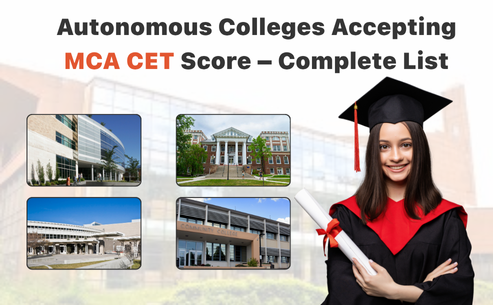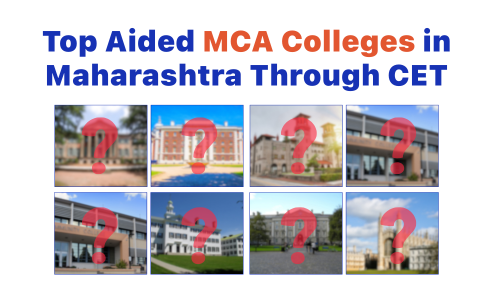Introduction: Understanding the MCA Course 2026
The Master of Computer Applications (MCA) remains one of the most sought-after postgraduate programs in India’s technology landscape. As the digital transformation accelerates across industries, the mca course 2026 presents exceptional opportunities for students seeking to build careers in software development, system analysis, and IT management.
This comprehensive program bridges the gap between theoretical computer science knowledge and practical application skills. With the rapid evolution of technologies such as artificial intelligence, machine learning, and cloud computing, the MCA curriculum has been continually updated to meet industry demands.
For aspiring technology professionals, understanding every aspect of the mca course 2026 becomes crucial for making informed educational decisions. The program offers diverse specializations, excellent career prospects, and the flexibility to work across various technology domains.
MCA Full Form and Details
What Does MCA Stand For?
MCA stands for Master of Computer Applications. This postgraduate degree program focuses on computer applications, software development, and information technology management. The mca full form and details encompass a comprehensive study of programming languages, database management, software engineering, and emerging technologies.
Overview of the MCA Course
The MCA program typically spans three years (six semesters) in most Indian universities, though some institutions offer two-year programs for students with specific educational backgrounds. The curriculum combines theoretical foundations with practical implementation, ensuring graduates possess both conceptual understanding and hands-on experience.
Key features of the program include:
- Comprehensive coverage of programming languages including Java, Python, C++, and emerging technologies
- Project-based learning approach with industry collaborations
- Internship opportunities with leading technology companies
- Research components focusing on contemporary IT challenges
- Soft skills development for leadership roles in technology organizations
The program prepares students for diverse roles in software development, system administration, database management, and technology consulting. Modern MCA programs also incorporate emerging fields like data science, cybersecurity, and mobile application development.
MCA Admission Process 2026
Key Steps in the Admission Process
The mca admission process 2026 follows a structured approach across most Indian institutions. Understanding these steps helps candidates prepare effectively and avoid missing critical deadlines.
Step 1: Eligibility Verification Candidates must first ensure they meet the basic eligibility criteria set by their target institutions. This includes educational qualifications, minimum percentage requirements, and subject prerequisites.
Step 2: Entrance Exam Registration Most top MCA colleges require candidates to appear for entrance examinations. Registration for these exams typically begins in February-March for the academic year starting in July-August.
Step 3: Entrance Exam Preparation and Attempt Candidates need to prepare for specific entrance exams based on their college preferences. Each exam has its unique pattern and syllabus.
Step 4: Result Declaration and Counseling After exam results are declared, qualified candidates participate in counseling sessions where seat allocation occurs based on ranks and preferences.
Step 5: Document Verification and Admission Confirmation Final admission requires submission of original documents and payment of admission fees within specified deadlines.
Important Dates and Deadlines
The mca admission process 2026 timeline varies across institutions, but general patterns include:
| Activity | Timeline |
| Application Form Release | February – March 2026 |
| Last Date for Applications | April – May 2026 |
| Entrance Exam Dates | May – June 2026 |
| Result Declaration | June – July 2026 |
| Counseling Process | July – August 2026 |
| Academic Session Commencement | August – September 2026 |
Entrance Exams Required for MCA Admission
Several mca entrance exams 2026 serve as gateways to premier institutions:
NIMCET (National Institute of Technology MCA Common Entrance Test) Conducted for admission to NITs and other participating institutions, NIMCET is among the most competitive MCA entrance exams.
MAH MCA CET (Maharashtra MCA Common Entrance Test)
Conducted by the State CET Cell, MAH MCA CET is a state-level entrance exam for admission to MCA programs in Maharashtra’s top government and private colleges. It is a key exam for students seeking MCA seats in institutions like Mumbai University, Pune University, and others across the state.
JNU MCA Entrance Exam Jawaharlal Nehru University conducts its entrance exam for MCA admissions, known for its rigorous selection process.
BHU PET (Banaras Hindu University Postgraduate Entrance Test) BHU conducts its entrance exam for various postgraduate programs, including MCA.
State-Level Entrance Exams Many states conduct their entrance exams for MCA admissions to state universities and affiliated colleges.
University-Specific Entrance Exams Several universities conduct their entrance examinations for MCA admissions, each with unique patterns and syllabi.
MCA Entrance Exam Syllabus
Understanding the syllabus for mca entrance exams 2026 is crucial for effective preparation. While specific syllabi may vary across different entrance exams, the core topics remain consistent:
Mathematics Section
- Set Theory and Mathematical Logic
- Relations and Functions
- Algebra: Groups, Rings, Fields
- Linear Algebra: Matrices, Determinants, Vector Spaces
- Calculus: Limits, Continuity, Differentiation, Integration
- Differential Equations
- Probability and Statistics
- Discrete Mathematics: Graph Theory, Combinatorics
- Number Theory
- Coordinate Geometry
Computer Awareness Section
- Fundamentals of Computer Systems
- Number Systems: Binary, Octal, Hexadecimal
- Computer Organization and Architecture
- Data Structures: Arrays, Linked Lists, Stacks, Queues, Trees
- Basic Algorithms and their Complexity
- Programming Concepts in C/C++
- Database Management Systems Basics
- Computer Networks Fundamentals
- Operating Systems Concepts
- Software Engineering Principles
Analytical Ability and Logical Reasoning
- Data Interpretation and Analysis
- Logical Sequences and Series
- Coding and Decoding
- Blood Relations and Direction Sense
- Syllogisms and Statement-Conclusion
- Puzzles and Arrangements
- Quantitative Comparisons
- Critical Reasoning
- Pattern Recognition
- Analytical Reasoning
English Language and Comprehension
- Reading Comprehension Passages
- Vocabulary: Synonyms, Antonyms, Analogies
- Grammar: Tenses, Articles, Prepositions
- Sentence Correction and Completion
- Para Jumbles and Sentence Rearrangement
- Error Detection and Correction
- Idioms and Phrases
- One Word Substitution
Exam-Specific Syllabus Variations:
NIMCET and MAH CET Specific Topics:
- Advanced Mathematics with emphasis on Engineering Mathematics
- Programming in C language (detailed concepts)
- Computer Fundamentals with hardware knowledge
- Analytical ability with higher difficulty level
JNU MCA Specific Topics:
- Research methodology basics
- Advanced logical reasoning
- Contemporary issues in technology
- Social science awareness
Preparation Strategy for Entrance Exams:
- Mathematics requires strong conceptual understanding and regular practice
- Computer awareness needs hands-on programming experience
- Logical reasoning improves with consistent practice and pattern recognition
- English comprehension benefits from regular reading habits
- General knowledge requires current affairs updates and static GK revision
MCA Entrance Exam Pattern
MAH CET Exam Pattern
- Mode: Online (Computer-based)
- Duration: 90 minutes
- Total Marks: 200
- Sections:
- Mathematics & Statistics – 30 Qs
- Logical/Abstract Reasoning – 30 Qs
- English Comprehension – 20 Qs
- Computer Concepts – 20 Qs
- Mathematics & Statistics – 30 Qs
NIMCET Exam Pattern
- Mode: Online (Computer-Based Test)
- Duration: 120 minutes (2 hours)
- Total Marks: 480
- Type of Questions: Multiple Choice Questions (MCQs)
- Marking Scheme:
- +4 marks for each correct answer
- –1 mark for each incorrect answer (negative marking applies)
- +4 marks for each correct answer
- Mathematics & Statistics – 50 Qs
- Logical/Abstract Reasoning – 40 Qs
- English Comprehension –20 Qs
- Computer Concepts – 10 Qs
MCA Eligibility Criteria 2026
Educational Qualifications and Prerequisites
The mca eligibility criteria 2026 have been standardized across most institutions, though specific requirements may vary:
Basic Educational Requirements:
- Bachelor’s degree in Computer Applications (BCA), Computer Science, or related fields
- Graduation in Science stream with Mathematics as a subject (BSc with Mathematics/Statistics/Computer Science)
- Bachelor’s degree in Engineering or Technology
- Minimum aggregate of 50% marks (45% for reserved categories) in qualifying examination
Subject Prerequisites: Mathematics at 10+2 level or graduation level is mandatory for most institutions. Some universities accept students without mathematics background but require them to complete bridge courses.
Age Limitations: Most institutions do not impose age restrictions for MCA admissions, making the program accessible to working professionals seeking career transitions.
Other Requirements
Work Experience: While not mandatory, relevant work experience in IT or related fields can be advantageous during the selection process, especially for executive MCA programs.
English Proficiency: Since the medium of instruction is primarily English, adequate proficiency in the language is essential for academic success.
Computer Literacy: Basic computer skills and familiarity with fundamental programming concepts are beneficial, though not strictly required for admission.
MCA Fees in Top Colleges
Comparison Between Government and Private Institutions
Understanding mca fees in top colleges helps students plan their financial investments effectively:
| Institution Type | Annual Fees Range | Total Program Cost |
| Government Colleges/NITs | ₹50,000 – ₹1,50,000 | ₹1,50,000 – ₹4,50,000 |
| Private Universities | ₹2,00,000 – ₹5,00,000 | ₹6,00,000 – ₹15,00,000 |
| Deemed Universities | ₹1,50,000 – ₹4,00,000 | ₹4,50,000 – ₹12,00,000 |
Government Institution Advantages:
- Significantly lower tuition fees
- Additional scholarships and financial aid options
- Strong industry connections and placement support
- Research opportunities with government funding
Private Institution Benefits:
- Modern infrastructure and technology resources
- Industry partnerships and guest lecture programs
- Flexible curriculum and specialized tracks
- International exposure and exchange programs
Financial Planning Considerations: Students should factor in additional costs including hostel fees, books, project expenses, and living costs when budgeting for their MCA education.
MCA Syllabus and Subjects
Core Subjects and Modules
The mca syllabus and subjects have evolved significantly to incorporate contemporary technology trends:
First Year Core Subjects:
- Fundamentals of Computer Science and Programming
- Data Structures and Algorithms
- Database Management Systems
- Computer Organization and Architecture
- Mathematical Foundations for Computer Science
- Operating Systems
- Software Engineering Principles
Second Year Advanced Topics:
- Advanced Programming Languages (Java, Python, .NET)
- Web Technologies and Development
- Computer Networks and Communication
- System Analysis and Design
- Mobile Application Development
- Data Mining and Warehousing
- Computer Graphics and Multimedia
Third Year Specialization and Projects:
- Artificial Intelligence and Machine Learning
- Cybersecurity and Information Security
- Cloud Computing and Distributed Systems
- Enterprise Resource Planning
- Major Project Work
- Industry Internship
- Research Methodology
Best MCA Specializations
The best mca specializations cater to diverse career aspirations and industry demands:
Data Science and Analytics This specialization focuses on big data processing, statistical analysis, and predictive modeling. Graduates find opportunities in business intelligence, market research, and data consulting roles.
Cybersecurity With increasing digital threats, cybersecurity specialists are in high demand. This track covers network security, ethical hacking, digital forensics, and security auditing.
Artificial Intelligence and Machine Learning Students learn algorithm development, neural networks, natural language processing, and computer vision applications.
Mobile and Web Development This specialization covers responsive web design, mobile app development for various platforms, and user experience optimization.
Cloud Computing Students gain expertise in cloud architecture, virtualization, containerization, and cloud service management.
Top MCA Colleges in India
Detailed Overview of the Best Institutions
Selecting from the top mca colleges in india requires careful consideration of various factors:
National Institute of Technology (NIT) Colleges NITs across India offer high-quality MCA programs with excellent placement records. Notable NITs for MCA include:
- NIT Trichy
- NIT Warangal
- NIT Suratkhal
- NIT Raipur
These institutions provide rigorous academic programs, modern laboratories, and strong industry connections.
Jawaharlal Nehru University (JNU), New Delhi JNU’s School of Computer and Systems Sciences offers a prestigious MCA program known for its research orientation and academic excellence.
Banaras Hindu University (BHU), Varanasi BHU’s Institute of Science offers a comprehensive MCA program with strong emphasis on both theoretical foundations and practical applications.
Jamia Millia Islamia, New Delhi The Department of Computer Science at Jamia offers an excellent MCA program with modern curriculum and good placement opportunities.
University of Hyderabad Known for its research-oriented approach, the university offers a high-quality MCA program with excellent faculty and resources.
Private Institution Leaders:
- Manipal Institute of Technology
- Vellore Institute of Technology (VIT)
- SRM Institute of Science and Technology
- Amity University
- Lovely Professional University
These institutions offer modern infrastructure, industry partnerships, and comprehensive student support services.
Career Scope After MCA
Career Options and Job Roles
The career scope after mca encompasses diverse opportunities across multiple industries:
Software Development Roles
- Software Developer/Engineer
- Full-Stack Developer
- Mobile App Developer
- Web Developer
- System Programmer
Management and Consulting Positions
- IT Project Manager
- Technology Consultant
- Business Analyst
- System Analyst
- Technical Lead
Specialized Technical Roles
- Database Administrator
- Network Administrator
- Cybersecurity Analyst
- Data Scientist
- Cloud Solutions Architect
Entrepreneurial Opportunities Many MCA graduates establish their technology startups, software development companies, or IT consulting firms.
Academic and Research Careers Graduates can pursue teaching careers in colleges and universities or engage in research activities leading to Ph.D. programs.
Salary Expectations and Growth Prospects
Career progression after MCA shows promising trends:
| Experience Level | Salary Range (Annual) | Typical Roles |
| Entry Level (0-2 years) | ₹3,50,000 – ₹8,00,000 | Junior Developer, Trainee |
| Mid Level (3-5 years) | ₹8,00,000 – ₹15,00,000 | Senior Developer, Analyst |
| Senior Level (6-10 years) | ₹15,00,000 – ₹30,00,000 | Team Lead, Manager |
| Expert Level (10+ years) | ₹30,00,000+ | Director, CTO, Consultant |
Industry Growth Factors:
- Rapid digitalization across sectors
- Increasing demand for software solutions
- Growth in e-commerce and fintech sectors
- Expansion of cloud computing services
- Rising importance of data analytics and AI
MCA vs MSC Computer Science
Key Differences and Advantages
Understanding mca vs msc computer science helps students choose the appropriate program:
MCA Program Focus:
- Application-oriented curriculum
- Industry-relevant project work
- Practical software development skills
- Business application emphasis
- Direct entry into software industry roles
MSc Computer Science Focus:
- Research-oriented approach
- Theoretical foundations emphasis
- Mathematical and algorithmic focus
- Preparation for academic careers
- Strong foundation for Ph.D. programs
Career Trajectory Differences: MCA graduates typically enter industry roles immediately, while MSc Computer Science graduates may pursue further research or academic positions.
Industry Preference: Most software companies prefer MCA graduates for development roles due to their practical orientation and industry-ready skills.
Frequently Asked Questions (FAQs)
- What is the full form of MCA and who should pursue it?
MCA stands for Master in Computer Applications. Therefore, this program is suitable for students who have completed a BCA, BSc (with Mathematics), or Bachelors in Engineering (B.E) and wish to pursue a career in software development (programming), IT Management, or technology consulting.
- How can one secure admission in the MCA course in 2026?
Admission requires students to fulfill eligibility requirements, qualify in entrance exams, and follow the counseling process, as implemented by different universities. Students should study well and thoroughly prepare for entrance exam(s) and identify the proper eligibility and entrance qualifications at their universities of choice.
- Which entrance exams are required for MCA admission in 2026?
The major entrance exams for MCA include NIMCET- entrance exam and counseling (for NITs) , JNU MCA entrance, BHU PET, and state and university specific entrances. Each entrance can have a different type and degree of examination pattern and syllabus.
- What is the syllabus for MCA in 2026?
The main syllabus considered for MCA include: Programming languages (both traditional and web-based programming), data structures, databases, software engineering, web technologies, applied artificial intelligence, and tracks, such as cybersecurity and data science.
- What is the eligibility criteria for MCA course after BCA or BSc?
Candidates must have a qualifying Bachelor degree program with a minimum CPGA of 50 %, Mathematics subject as part of curriculum at either 10+2 or graduation level, and qualify in an entrance exam (students should note their registrations and follow their specific institutional requirements) or specific university procedures. The following criteria can differ among institutions
- What are the fees for MCA in top government and private colleges?
The top government colleges have annual tuition fees of ₹50,000-₹1,50,000 per year. Private colleges have tuition fees of ₹2,00,000-₹5,00,000 for the two-year program. Total fees varies widely depending on the type of college.
- Which are the top MCA colleges in India for 2026 admissions?
Top colleges include different NITs, JNU, BHU, University of Hyderabad, Manipal Institute of Technology, VIT, SRM Institute of Science and Technology.
- What are the career options and salary prospects after MCA in 2026?
Career options after completing an MCA course include software development, IT managers, IT consulting and entrepreneurs. The initial salary expectation would be ₹3,50,000-₹8,00,000 per year but there is great potential to grow your income depending on the experience and specialization.







